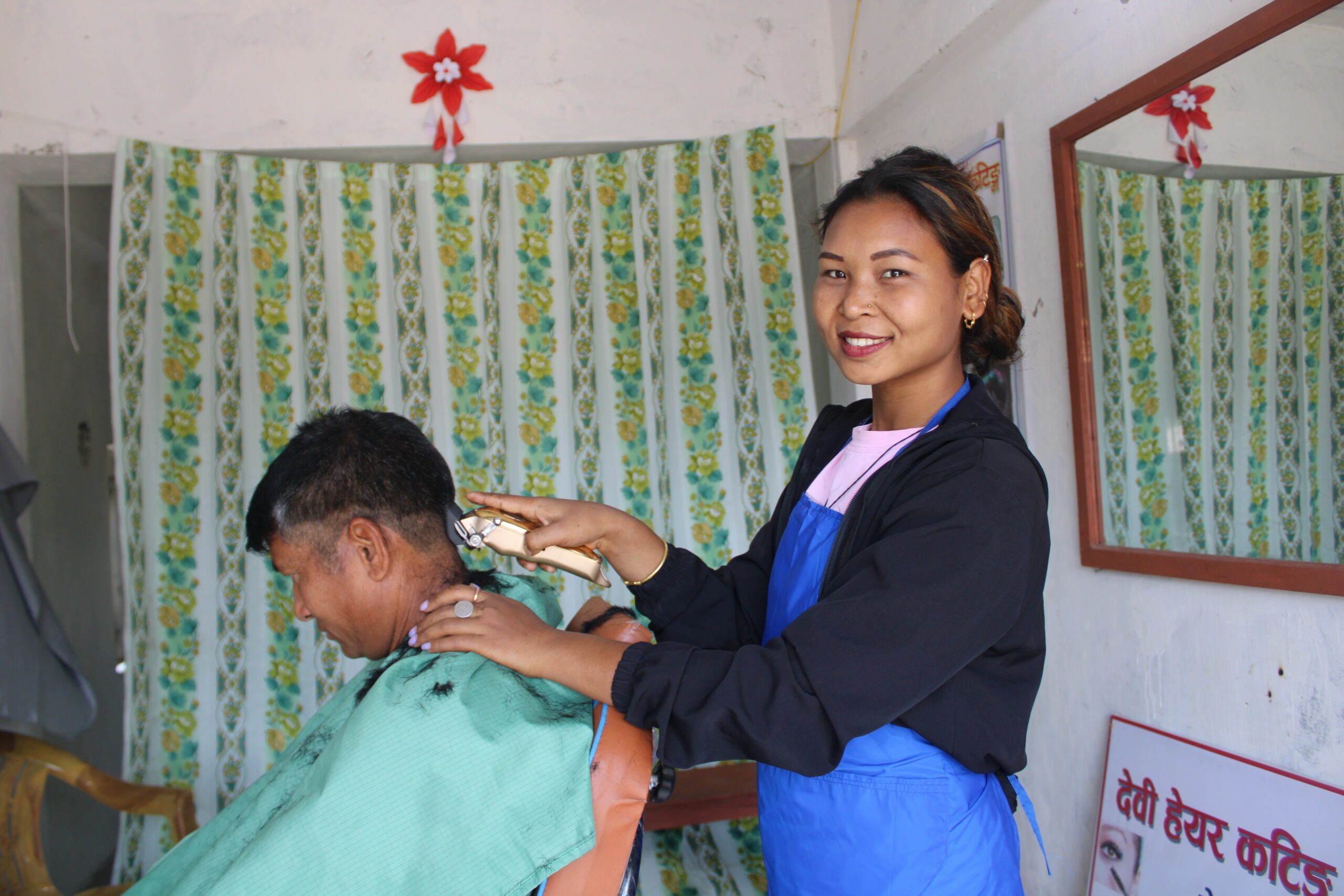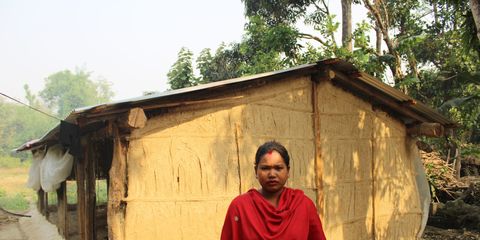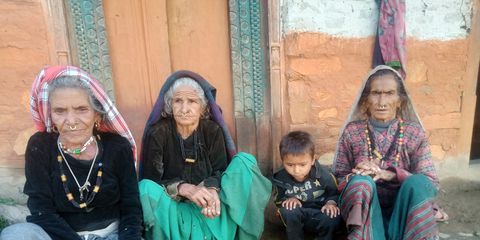Devi: Child bride to hairdressing professional
Meet 24-year-old Devi, who has become a role model for other girls and young women in her village after opening her own hairdressing and beauty parlour, despite getting married early when she was just 16.

From a remote village in Nepal’s Baridya district, Devi decided to marry her boyfriend while she was still studying at school. This marked the beginning of a challenging period in her life as she had to assume the role of a wife and not long after, a mother, diverting her attention from her education to her household responsibilities.
“My marriage changed my plans,” Devi explains. “I wanted to finish school, get a job, and take care of my family on my own.” Despite the hurdles, Devi was determined to persevere and eventually managed to complete her secondary education. However, with limited job opportunities in her village, she was unable to find any employment.
“My marriage changed my plans. I wanted to finish school, get a job, and take care of my family on my own.”
Devi
In rural parts of Nepal, significant barriers exist which prevent young women creating job opportunities for themselves or from accessing decent employment. Societal norms and stereotypes often discourage or limit women from pursuing certain careers which are often deemed more suitable for men.
Additionally, there is a lack of access to education and training in areas that are typically associated with male-dominated industries. Without proper training and opportunities to develop skills in these areas, young women can find it challenging to enter such professions and compete effectively.
“Turning my passion into a profession was only possible because of the skills training that I attended a year ago,” she tells us.
“Turning my passion into a profession was only possible because of the skills training that I attended a year ago.”
Devi
Breaking gender stereotypes and hairdressing professionally
Having had a keen interest in hairdressing from a young age, when Devi heard through friends about a vocational training programme operating in Bardiya, which including the option to learn hair and beauty skills, she decided to apply.
“I felt hopeful. I applied and was chosen,” shares Devi. “They taught me so much – life skills, business training, even how to protect myself. The best part was learning how to cut hair! After the training, I practiced at a local salon and grew more confident. It’s amazing how far I’ve come.”
“They taught me so much – life skills, business training, even how to protect myself. The best part was learning how to cut hair! After the training, I practiced at a local salon and grew more confident. It’s amazing how far I’ve come.”
Devi
Devi had 390 hours of classes at her local training centre to learn all the different hair-cutting skills and techniques. Following her training, she took part in practical on-the job training at a local hairdressing salon. Through hands-on experience and guidance, she built her confidence and perfected her skills, readying herself for when she could start her own business.
“At first I had doubts about my decision to learn hairdressing, but after seeing my family’s belief in me grow, I became more confident,” says Devi, who also had to seek her family’s approval before being able to cut men’s hair. “Serving male customers wasn’t easy. I started by gaining my husband’s support, and together, we persuaded my in-laws. Only then did they agree to let me continue attending the training sessions.”
Despite having her family’s support, Devi also had to persuade men that she was capable of cutting hair, which is traditionally considered to be a male role. “Initially, male customers were hesitant about getting haircuts, but now they’re comfortable. I’m a living example that work should not be limited by gender stereotypes.”
Following her training, Devi received seed capital from the project, using the money to open her own shop which she has called: ‘Devi Hair Cutting and Beauty Parlour Shop’. Today, her salon attracts 10 to 25 customers each day who come for haircuts and beauty services, bringing in a steady income of between NPR. 15,000-20,000 (USD 112-150) per month.
“Now, my family wholeheartedly supports me,” says Devi happily. “My husband used to be the sole breadwinner and often had to travel to India to look for seasonal work. My income has become a reliable source for my family’s needs, from my children’s education to household expenses, loan repayments, and medical bills. I no longer need to rely on my husband.”
Having experienced child marriage firsthand, Devi has also become a keen advocate against the practice, actively encouraging her customers and friends not to enter into early marriages. “Ending child marriages is everyone’s responsibility. We need to join hands for a brighter future.”
“Ending child marriages is everyone’s responsibility. We need to join hands for a brighter future.”
Devi
About Child, Not Bride project
Child, Not Bride (CNB) is a four-year multi-sectoral project funded by Norwegian State Broadcast Corporation, NRK Telethon, focused on developing youth leadership and strengthening opportunities for youth economic empowerment. The project also teaches young people about their sexual and reproductive health and rights, particularly girls and young women with the aim of addressing child, early, and forced marriage as a barrier to empowerment.
The CNB project has provided training on quick income-generating activities and starting and improving businesses, to households who have adolescent girls in their families. Following the training, each participant received business support. The project is being implemented by local partner organisations BEE Group in Bardiya and Aasaman Nepal in Dhanusa.

